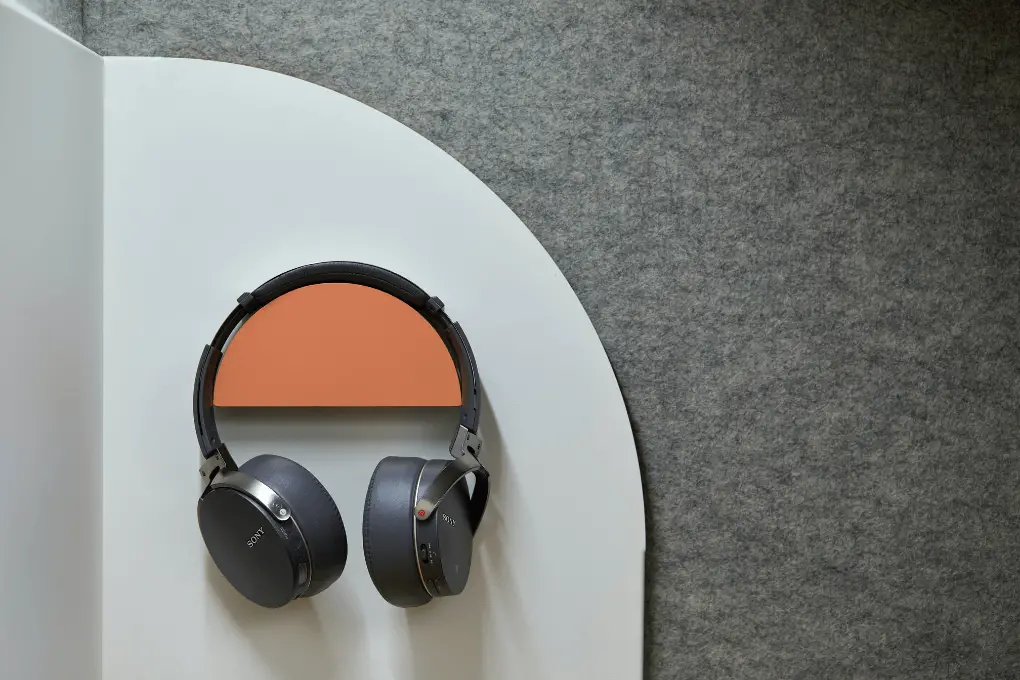Humans as we are, it’s normal for us to hang out with peers with whom we can have discussions about similar viewpoints. Indeed, it’s human nature to look for communities where you belong and where you feel most comfortable. But that isn’t always the case. Sometimes, we find shelter and comfort by living in a bubble.
But living in a bubble isn’t always a good thing. If you’re constantly sequestering yourself from the outside world, you might end up building walls that further isolate yourself from the larger world.
If you’re not careful, you may end up cutting yourself from significant connections and deprive yourself of experiences that could enrich your creativity.
[divider width=”full”]
Recommended Reading:
[divider width=”full”]

What does it mean to be living in a bubble?
To put it simply, living in a bubble means you are deeply absorbed in your own world. You only interact with communities of the same race, same educational level, same salary, and the same culture.
After living in a world that has everything you need, struggles and drastic changes feel almost foreign to you.
Living in a bubble can also refer to the way you receive information. You may be the kind who sticks to a specific source of information or consumes a particular type of media, believing that it holds the absolute truth and therefore is superior above the rest. You won’t bother checking for other opinions and may try to avoid venturing to other platforms.

Life in a bubble can feel safe, comfortable, and pleasurable—which is why it’s hard to step out of it. As long as your attention is always directed inward, you become oblivious to what is happening around you. This tunnel vision will limit your capacity to understand and will prevent you from thinking outside the box.
How are the bubbles created?
Some people are born into their bubbles, and others create their own.
For David Vetter, living in a bubble was his only shot at survival. David was born in 1971 with SCID, a disease that left him spending the first 12 years of his life inside a sterile, plastic bubble.

There was no cure for David’s disease during that time. As a result, he had to live in a specially constructed, sheltered world. Exploring the outside world was not an option for him.
Unlike David, people who live in their metaphorical bubbles can step out into the real world anytime they want. The problem is, they choose not to.

Some individuals may have the opportunity to be exposed to different cultures and different opinions. But instead of being open-minded, they ignore these views and arguments because they think that the only trust-worthy opinions are those from their own bubble.
The environment plays a role in creating your bubble

Sometimes, a person’s environment can also enable an individual to remain in their bubble. Social media platforms, for instance, are tweaked in a way that the information you receive corresponds to your preferences. Therefore, the media fed continuously to you will most likely be content that will not contradict your views and change your interests.
And so, without your own initiative and willingness, you won’t be able to discover new ideas, new ways of thinking, and new experiences. You might end up being stuck in the same place and lose the opportunity to develop your understanding.
How does isolation affect your creativity?

Individuals who insist on staying inside the thick bubble of their own world are mainly afraid of change.
If you identify yourself as such, you may are most likely resistant to perspectives and beliefs that challenge your own. You tend to ward off people who are unlike you, especially if you feel like you’re better than them.
If this continues, then you’re also inhibiting yourself from comprehending larger concepts and seeing the world at a macro scale. More importantly, you may also be causing harm to other people without realizing it. These are the possible things that will occur when you remain in your bubble:
- You become uninformed about the harsh reality and problematic events that require your attention and help.
- You fail at being empathetic — as a result, you often resort to discrimination and bullying, particularly when interacting with people who have a different background from you.
- Because you are not open to change, you remain stagnant and are more likely to commit the same mistakes.
- You have a limited and outdated perspective; in time, you may become irrelevant and uncredible.
- You will find difficulty working with teams, mainly because you aren’t open to criticism and solutions that are unlike your own.
- Because you refuse to grow out of your shell, you fail at becoming innovative. Instead of constantly improving, your skills and abilities are stuck in the same place.
What happens when the bubble pops?

Here’s a hard pill to swallow and a rude awakening to some —bubbles aren’t permanent.
One way or another, the harsh reality and tough challenges of life will always get to you. The world is constantly shifting, and each change will inevitably have a ripple effect on everyone. People who are living in a bubble feel safe in their shelter, but the truth is, bubbles aren’t secure.
This is why you have to pop that bubble, step out of your tiny space, and break the barriers that keep you from the rest of the world.
Instead of focusing your attention inward, you should think of the larger collective and act for the greater good. Make your contribution in creating sustainable solutions that will benefit everyone, especially those who don’t have the same privileges as you.
Jeff Goins realized the same thing when he traveled to Africa with his wife. Jeff had lived inside a bubble all his life; he had a beautiful home, a high-paying job, and an almost-perfect family.
But when he arrived in Ethiopia, he witnessed something that completely turned his life around—impoverished African families living happy and content lives.

Jeff’s most moving experience was meeting Wosne, a widow with four children living under a small hut.
Wosne came to a point where she had nothing—no source of income, no food, and no proper shelter. She almost gave up, but a sponsor generously supported her children and her family, allowing them to sell eggs.
Over time, Wosne earned enough money to build a house with four rooms, a tin roof, and a dirt floor. Jeff knows that this isn’t luxury by his standards, but he was greatly inspired when he saw how radiant and joyful Wosne was.
Wosne only had a single bulb in her home and few pieces of furniture, but when she was asked what else she wanted, she merely answered, “Nothing, I have everything I need.”
The encounter deeply impacted Jeff, and as soon as he went home, he committed himself to make a change in his lifestyle.
Jeff believes that laziness does not lead to a fulfilling life. He knew he had to find courage, make sacrifices, and be more involved in the lives of people who are unlike him.
[divider width=”full”]
Recommended Reading:
[divider width=”full”]
How to break out of the bubble

Breaking the bubble takes a lot more than popping it with a needle. There has to be a lot of sacrifices on your end. But for starters, here’s what you can do:
Be humble.
Admit that you’re not always correct about everything and that there’s always something to learn.
Expand your sources of information.
Try other mediums of information, browse for journals you haven’t ventured, and listen to opinions that are different from yours. Actively search for perspectives that will widen your knowledge and expand your understanding.
Engage in public forums and talks.
These environments allow you to hear different voices and different perspectives. Listen to them with an open mind and be willing to receive criticisms about your ideas.
Expose yourself to various communities.
Seek to build relationships with people who have a different background from you. Hear them out and understand their side of the story.
Put yourself in the shoes of others.
Remember, the world doesn’t revolve around you. Empathize with those who are going through difficult times and learn to see the situation through their eyes.
Step out of your bubble.
Be mindful of how you interact with people and react to matters that don’t agree with what you believe in. Strive to grow by immersing yourself in situations that require courage.
Staying in a bubble will not only impact your creative mind, but it can also limit you from having a fulfilling life. But if you break down the barriers around you, you may find fruitful connections from people that will nourish your spirit and expand your understanding.
Do you think you’re living in a bubble or know someone who does?
How will you bring down your own barriers? Let us know in the comments below!

Disclaimer:
This post may contain affiliate links. Meaning, if you click on one of the product links, I will earn a small commission at no cost to you. Thank you for supporting Creativity Mesh.






I enjoyed reading this post. I think a lot of us are living more deeply in a bubble than ever before. Sequestered people tend to build new worlds within their surroundings.
Thank you for the kind words, Rolfe. Glad you like this piece.
I totally agree with you. We’re getting too comfortable within our own bubbles. That’s why I’m looking forward to traveling as soon as the travel restrictions are lifted. There are so many things to see, learn and do out there!
Awesome post! You really speak to the common reality that many of us encounter in our lives. It is so essential as human beings to foster growth by embracing and adapting to change irregardless of our age or indicators that differ us from the rest. Like you pointed out, we as humans thrive off of communal interaction and we can grow in our interaction and within ourselves by stepping outside of our comfort zone and old habits (which makes me think of the book, Atomic Habits by James Clear). Thank you for providing a narrative analysis to such a common but life changing habit to break–stepping outside of our bubble. I know that has been how I’ve experienced so much growth. Thank you!
Hey Freddie! Thank you so much for dropping that insightful comment.
You see, I speak from experience. I’m an extreme introvert myself — but I’m constantly trying to improve myself so that I get to enjoy what life has to offer. We only have one life to live, after all. We don’t even know how much time we have left in this world. So, I guess I could give up a bit of my comfort so that I get to experience and appreciate the outside world more. It would be worth it!
Also, I love the book Atomic Habits! It totally changed my perspective about developing habits.
Excellent post! Thank you. ?
I enjoyed this post very, very much. Which is a long way of saying it is fabulous. I have lived in bubbles on and off over the years, purely as a defence mechanism against a heavy interactive and responsible professional life. Each one of the tips on how to break out of the bubble are spot on!
Thank you for the kind words, Sean!
I know exactly how you feel because I myself have a very comfortable bubble and I sometimes dread the company of others. But sometimes, we have to get out to give ourselves the opportunity to improve!
Lovely posts! I hope to visit your blog again soon!
For 60 years I lived in the very opposite of a bubble. Then I retired, and started to live in a very small bubble. On balance, I prefer the bubble.
Thanks for following my blog.
Best wishes, Pete.
Enjoyed the post.
Great post, thank you.